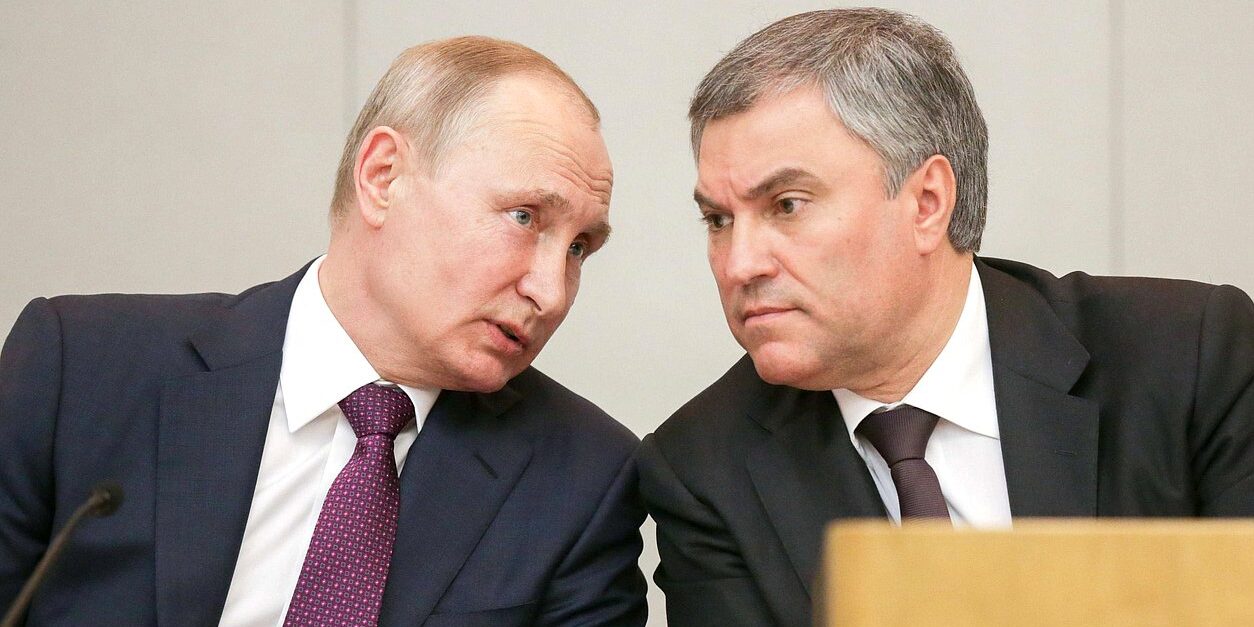Vyacheslav Volodin, Chairman of Russia’s State Duma, threatened today Europe and the US with “global catastrophe” over their continued military support to Ukraine, which is trying to retake territory lost in the Russian invasion. The threat, which directly invoked the use of nuclear weapons, comes amid arguments over whether Germany will send Leopard 2 battle tanks to Ukraine to fight the Russian invasion.
Lessons From The Past
The notion of appeasing Russia, in the hopes of avoiding conflict and escalation, is not a new one. History has shown that appeasement only serves to embolden aggressors and postpone inevitable confrontations. The most notable example of this is the appeasement of Nazi Germany in the 1930s, which ultimately led to the devastation of World War II.
But the dangers of appeasement are not limited to the 20th century. The Mongol Empire, for example, was able to conquer vast territories in the 13th century through a combination of military might and diplomacy, as neighboring kingdoms and empires chose to appease the Mongols rather than confront them head-on. Similarly, the Ottoman Empire’s expansion in the 15th and 16th centuries was facilitated by the disunity among European powers, who sought to avoid conflict with the powerful empire.

The Ukraine crisis is yet another example of appeasement failing as a foreign policy strategy. Russia’s annexation of Crimea in 2014 and its ongoing support for separatist rebels in eastern Ukraine have been met with a combination of sanctions and diplomatic pressure, rather than a robust military response. This has done little to deter Russia, and has instead embolden it to start a prolonged and bloody conflict that has claimed over 100,000 casualties last year alone.
Why Appeasing Russia is a Strategic Mistake
It’s clear that appeasement is not only morally wrong, but also strategically foolish. The Russian government, led by President Vladimir Putin, has shown time and again that it is not a responsible partner on the international stage. From its annexation of Crimea to its support for separatist rebels in eastern Ukraine, to its interference in the 2016 US presidential election, Russia has repeatedly demonstrated a willingness to flout international law and undermine the sovereignty of other nations.
Appeasing Putin may seem like a quick fix to the ongoing conflict in Ukraine, but it is a strategic mistake that could lead to further aggression from Moscow. By giving in to Russia’s demands, we are sending a message of weakness and vulnerability that can be exploited by Putin and his regime. It is important to remember that the same tactics of aggression and expansion used in Ukraine, could be used in other neighboring countries such as the Baltics or Moldova. By appeasing Russia, we are not only failing to stand up for the sovereignty of Ukraine, but we are also putting the security of other European countries at risk.

Providing Leopard 2 tanks to Ukraine is not only a show of support for their sovereignty and territorial integrity, but it is also a strategic move. The tanks, which are considered to be some of the best in the world, would greatly enhance Ukraine’s ability to defend itself against Russian aggression. However, it is important to set clear conditions that the tanks would not be used to cross pre-2016 invasion Russian borders, as this would only escalate the conflict.
In conclusion, appeasement is not only morally wrong, but it is also a strategic mistake that could lead to further aggression from Russia and undermine the international system. By standing with Ukraine and providing them with the necessary military support, we can send a clear message that we will not tolerate territorial aggression and violations of international law.
The Road to a Stronger Europe
A strong and united Europe, in partnership with its traditional allies, is the only way to counter the threat of Russian expansionism and protect the people of Ukraine. This is because a unified Europe, with a clear and decisive foreign policy, can present a formidable deterrent to Russian aggression. Only by taking a firm, united stance against aggression can we hope to bring peace in Europe again.
A unified Europe would also be better equipped to provide the necessary military and economic aid to Ukraine in its fight against Russian invasion. A unified Europe would also be able to coordinate sanctions and other diplomatic measures to put pressure on Russia to end its aggression. Furthermore, a united Europe would be able to provide the necessary humanitarian aid to the people of Ukraine, who are suffering as a result of the conflict.
A strong and united Europe, in partnership with its traditional allies, is the only way to counter the threat of Russian expansionism and protect the people of Ukraine.
In short, a strong and united Europe is the key to ensuring that the people of Ukraine are not left to face the threat of Russian expansionism alone. It is time for Europe to come together and take a stand against this aggression, to protect the people of Ukraine and uphold the principles of peace and security in our continent. It is time for Europe to show the world that it is a leader in the international community, and that it will not stand idly by while others suffer.
In the face of direct and explicit nuclear threats, we must recognize that appeasement is not just morally wrong, but also strategically unsound. History has shown that appeasement only serves to embolden aggressors, and we must learn from the failures of the past to ensure a safer future for all. It’s time for Europe to come together and take a clear stand against Russian aggression in Ukraine and beyond, before it’s too late.






